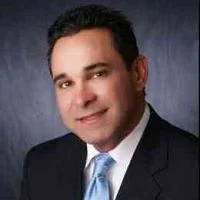Fee Simple Estate
Fee simple estate is a term used to describe ownership or freehold of an estate and the type of ownership of an estate. The possessory interest, also referred to as fee (a word derived from “fief”, a feudal landholding), is inherited, vested, or presented to the holder. It can be limited or unlimited regarding its use or its possessor. A fee simple estate is the most expansive interest admitted by law that anyone can have in land or property. The fee simple interest isn’t finalized until the estate holder dies without an heir to inherit the estate.
The term is not often used in the modern age as it is a remnant of the 14th century. Because the term is broad, there are sub-types and sub-set types. The two main types of fee simple estate are absolute and defeasible.
Fee Simple Absolute
The fee simple absolute, as the most permissive and unrestricted form of fee simple estate, is often referred to as simply fee simple. While this may create confusion, we’ll refer to it as fee simple absolute here. Typically, a fee simple absolute is an interest in property received when someone buys, inherits, or receives land.
The absolute part of the ownership or freehold draws attention to its lack of limitation. This interest does not end if something happens or doesn’t happen; it holds unlimited power, and the holder has complete control of possession, alienation, and exclusion.
The only conditions and contingencies that can administer the fee simple absolute are related to law or other zoning ordinances and covenants. When the estate holder dies, the estate is inherited by their heirs without any preconditions imposed.
Fee Simple Defeasible
While the fee simple absolute estate has no restrictions placed upon it, the fee simple defeasible estate is the type of fee simple estate ownership that has imposed restrictions or limitations. Based on the types of restrictions, there are two kinds of fee simple defeasible.
By definition, being opposed to fee simple absolute estate, the fee simple defeasible estate can be terminated. The termination reason breaks them into two sub-types: fee simple determinable and fee simple conditional.
Fee Simple Determinable
A fee simple determinable is a sub-type of fee simple defeasible that allows some restrictions or limitations on an estate. These conditions influence the right of possession. The limitations and restrictions may refer to how the property is used and administered by the estate holder. If these limitations are broken, the estate ownership is terminated and reverted back to the previous owner.
For example, a fee simple determinable estate received by John and his heirs allows the estate holders to use the property for charitable purposes. If and when the property is used for non-charitable purposes, the estate interest goes back to the previous owner or their heirs.
Fee Simple Conditional
The fee simple conditional is the second sub-type of fee simple defeasible. The conditions in a fee simple conditional estate impose restrictions to the rights of alienation. The right of alienation no longer allows the estate holder to will the estate to any one of their heirs, but only to some while excluding others.
For example, a fee simple conditional estate that John received can specify that it was given to John and his male heirs. Through that wording, John can not will the estate to a daughter or niece, but only to male heirs of his. If John doesn’t have any male heir at the time of death, the estate goes back to the previous owner or their heirs, male heirs.
Popular Real Estate Terms
Person or business that obtains mortgages for others by finding suitable lenders. The mortgage broker sometimes deals with collections and disbursements. Typically the mortgage broker ...
Statement filed with a governmental authority declaring property a homestead for the purposes of securing a homestead exemption. The declaration of homestead has no effect on the property ...
Arrangement between neighbors permitting one of them to put a beam for support on another neighbors wall. ...
To define active participation, we have to look at owning residential rental real estate. Activities that handle rental real estate are considered passive activities and are affected by the ...
Securing lease commitments to a building prior to its being available for occupancy. For example, a developer offers a discounted lease to potential tenants providing they agree to sign a ...
Expenditures incurred subsequent to the building of a structure. ...
Same as term furring strip: Insulating material attached to crevices around doors and windows to prevent air from either entering or escaping from a structure. Tacked, stapled, or glued ...
What does inchoate refer to generally? The term inchoate is a formal word that can describe many things in various fields of life. An inchoate act defines something at an early stage, ...
Individual making the payments in a mortgage or pledging a mortgage or property. ...

Have a question or comment?
We're here to help.